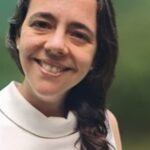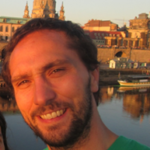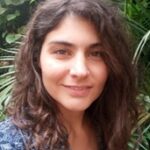New IWA Young Water Professionals Chapter in Argentina
As part of IWA’s mission to empower Young Water Professionals to contribute to sustainable water management, a new IWA Young Water Professionals (IWA YWP) Chapter was established in Argentina in March 2022.
This IWA YWP chapter will be the country’s go-to network boosting connections for YWPs and a platform to support equal opportunities and quality career development. As a voluntary network, the Argentina chapter is open to all water professionals aged 35 or below who are enthusiastic, dedicated, and passionate about water-related issues. Agustin Landaburu, civil engineer from Buenos Aires and Chair of YWP Argentina, presents some key points about the chapter.
Q: What was the motivation for setting up an IWA YWP Chapter in Argentina?
Agustin Landaburu: In Argentina, we believe it’s necessary to have a multidisciplinary network of young professionals who can benefit from constant exposure to emerging technologies, new research, developments, and innovations related to water, and who also have the ability to adapt them into the local socio-environmental conditions of each region in Argentina. Our goal is to empower young professionals as promoters of a new water governance paradigms in a more inclusive, fair, and sustainable manner.
Q: How will the chapter contribute to the empowerment of YWPs to contribute to the national water agenda of Argentina?
AL: YWP Argentina provides a forum for debates on complex issues requiring multidisciplinary, innovative and inclusive approaches and hopes to include a great number and variety of water-related actors. We will deliver and participate in cutting-edge discussions that will shape the future of water, climate, energy and the environment in the country while taking into account local social conditions.
In this way, the Argentinian chapter will seek to close the current gap between academia and industry by building institutional links between different areas of knowledge, integrating results from different sectors, and generating awareness and urgency in the political and social arena.
Q: What are your aims and objectives for your chapter, and what activities do you plan to do?
AL: The main objectives of the YWP Argentina Chapter are to:
- bring decision makers closer to academia by involving sector institutions, promoting synergy between management and scientific institutions in the sector;
- promote an equal voice and offer more capacity building and decision-making opportunities for young professionals and women in water;
- deliver a range of activities taking into account the SDGs and the cross-cutting nature of water resources and their interdependence with these goals and to raise public awareness on the protection of water resources, with a view to collaborating on water governance and citizen engagement initiatives.
The activities that YWP Argentina Chapter will carry out include promoting spaces for interaction and dialogue through the social networks, disseminating country chapter newsletters about activities and developments in the region, and hosting activities, courses and workshops with IWA experts on different water aspects. To carry out these activities, the chapter members will be constantly working with other YWP regional chapters in Latin America and with the Argentinian governing member, AIDIS.
Meet the founding committee of the IWA YWP Argentina Chapter
Agustin Landaburu, Chair
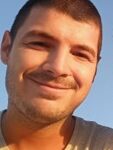 Agustin is a civil engineer and has a Master’s degree in Water Management from University of Buenos Aires (UBA) where he is currently assistant professor.
Agustin is a civil engineer and has a Master’s degree in Water Management from University of Buenos Aires (UBA) where he is currently assistant professor.
He has more than five years of experience in project development and has worked on urban upgrading of heavily populated areas characterised by substandard housing conditions and vulnerable population in the city of Buenos Aires. He also worked in several projects of water supply, sewerage and stormwater networks as project engineer.
Federica Brenner, Vice-chair
Federica has worked since 2004 at the Water and Sanitation Regulatory Entity (ERAS) of Buenos Aires Metropolitan Area. She is an economist (University of Buenos Aires) and obtained a Master’s degree in Urban Economics at Universidad Torcuato Di Tella.
She also teaches in the Master in Water Management and Master in Metropolitan Environmental Management, both in Buenos Aires University. Her research and teaching activities mainly focus on institutional organisation, tariff structures and subsidies and social impacts of urban water and sanitation services.
Sebastián Riera, Secretary
Sebastian is a postdoctoral fellow at the Universidad Nacional de Cuyo working on technical breaches of intensive agricultural systems in western Argentina, funded by CONICET and CREA. Sebastian’s work broadly focuses on applied production economics and circular economy. His interests are environmental performance, productivity analysis, and water use efficiency in agro-industries and water utilities. Sebastian holds +15 years of experience in water management projects under scarcity contexts. He earned his Ph.D. in Agricultural Economics in the Georg-August-Universität Göttingenin 2018.
María Constanza Bucci, General Coordination
Constanza has a degree in Food Science and Technology and a Master’s degree in Water Management, both from the University of Buenos Aires (UBA). She has been working in the water sector for more than 10 years, most notably with the largest operator of public services in Argentina: Agua y Saneamientos Argentinos S.A. (AySA SA). She is currently Head of Quality at the Juan Manuel de Rosas Water Treatment Plant, which supplies drinking water to more than 500,000 habitants. She has experience not only in the production and quality control of drinking water, risk management and quality management, but also in safety management, since the process is certified under ISO 9000, ISO 14000, ISO 22000 and ISO 45000 standards.
Néstor Filiel, Technical Management
Néstor is currently working as a technical supervisor in the area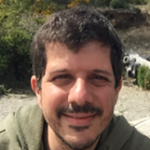 of solid and chemical inputs at AySA. He obtained a Degree in Chemistry from the University of Buenos Aires in 2017. His industrial developments are focused on water, purification, analytic chemistry and physicochemical applications. He also has experience teaching Organic and Inorganic Chemistry at the Exact Sciences school from University of Buenos Aires.
of solid and chemical inputs at AySA. He obtained a Degree in Chemistry from the University of Buenos Aires in 2017. His industrial developments are focused on water, purification, analytic chemistry and physicochemical applications. He also has experience teaching Organic and Inorganic Chemistry at the Exact Sciences school from University of Buenos Aires.
Bárbara Marion Gomez, Events and Public Relations
Barbara has 16 years of experience at the National Water Institute analysing various contaminants in groundwater, surface water, effluents, sediments and plant tissue as well as phytoremediation work. She is currently a PhD student at the University of Buenos Aires. Her research focuses on the implementation of different ecological rehabilitation strategies in urban streams from a transdisciplinary approach. In addition, she develops, together with neighbourhood social organisations, in situ artificial wetlands for greywater treatment in informal urban settlements.
Matías Cayetano López, Administration and Finance
Matias is a civil engineer currently working on the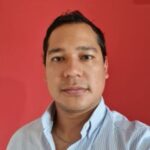 development of water and sanitation projects for Aguas del Norte in the province of Salta. Additionally, he is a consultant for hydrology projects, riverbank stabilisation and urban storm drainage. Besides, he performs activities as professor of Fluid Mechanics at the National University of Salta. Finally, he has a postgraduate degree in Rivers Hydraulics from the University of Santiago del Estero and a degree in Sanitation Engineering from the National University of Rosario.
development of water and sanitation projects for Aguas del Norte in the province of Salta. Additionally, he is a consultant for hydrology projects, riverbank stabilisation and urban storm drainage. Besides, he performs activities as professor of Fluid Mechanics at the National University of Salta. Finally, he has a postgraduate degree in Rivers Hydraulics from the University of Santiago del Estero and a degree in Sanitation Engineering from the National University of Rosario.
Melina Tobías, Communication and broadcasting
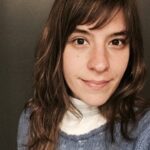 Melina is a Sociologist (UBA), with a Master in Economic Sociology (UNSAM) and a PhD in Social Sciences and Geography (UBA-Sorbonne Nouvelle Paris III). She is an Assistant Researcher of the National Council for Scientific and Technical Research (CONICET) based in the Urban Area of the Gino Germani Research Institute (UBA).
Melina is a Sociologist (UBA), with a Master in Economic Sociology (UNSAM) and a PhD in Social Sciences and Geography (UBA-Sorbonne Nouvelle Paris III). She is an Assistant Researcher of the National Council for Scientific and Technical Research (CONICET) based in the Urban Area of the Gino Germani Research Institute (UBA).
In the last ten years her research focused on urban water policy in Buenos Aires, the development of water and sanitation infrastructure networks, and the analysis of environmental conflicts over environmental and climate justice in large cities. She has academic experience in teaching positions in graduate and postgraduate courses, and in national and international publications, and also professional experience in qualitative and quantitative research projects for private consultancies, third-sector and international organisations.
For more information on IWA’s Young Water Professionals programme and country chapters, please visit this page or contact ywp@iwahq.org
